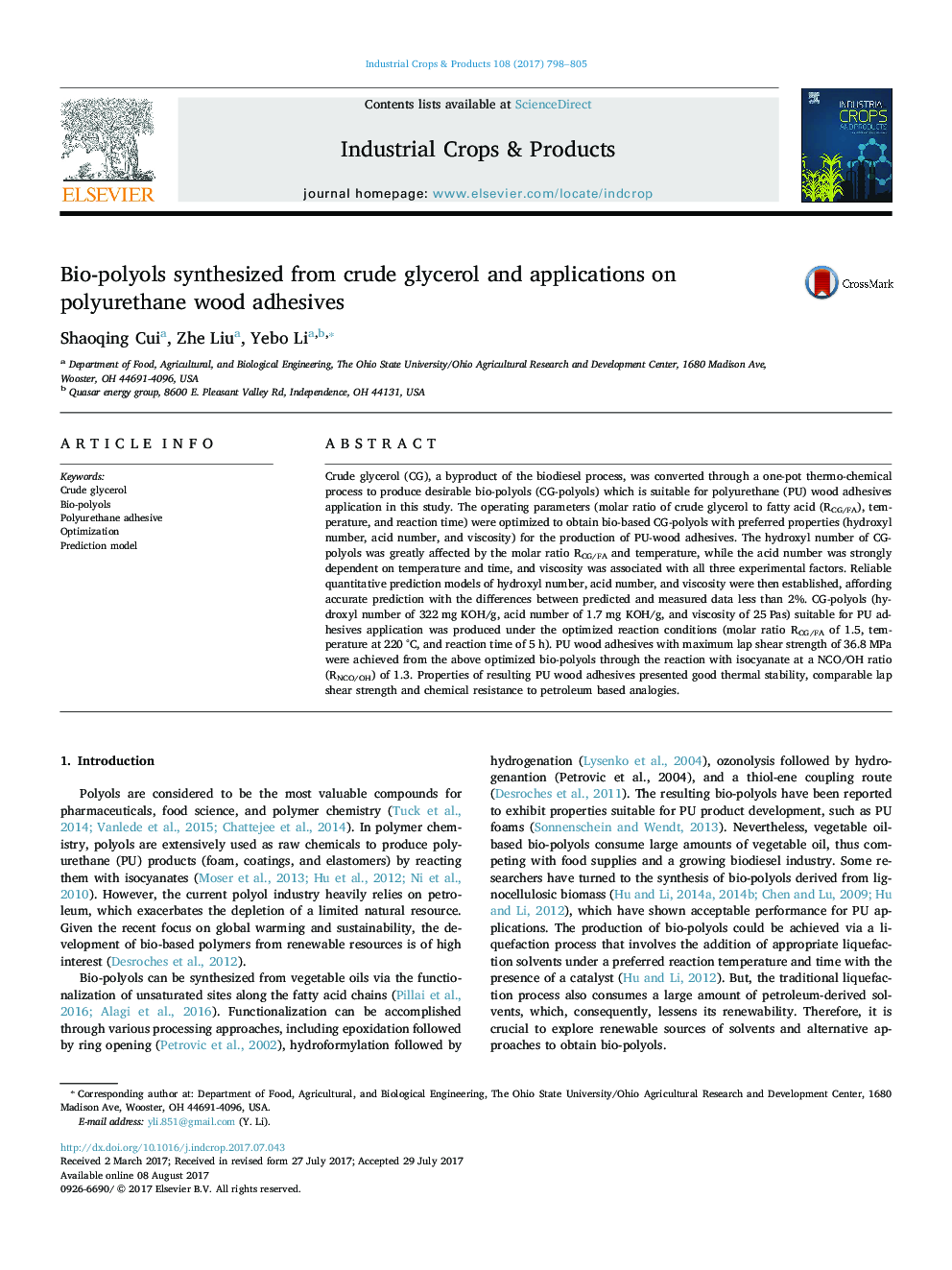| Article ID | Journal | Published Year | Pages | File Type |
|---|---|---|---|---|
| 5761862 | Industrial Crops and Products | 2017 | 8 Pages |
Abstract
Crude glycerol (CG), a byproduct of the biodiesel process, was converted through a one-pot thermo-chemical process to produce desirable bio-polyols (CG-polyols) which is suitable for polyurethane (PU) wood adhesives application in this study. The operating parameters (molar ratio of crude glycerol to fatty acid (RCG/FA), temperature, and reaction time) were optimized to obtain bio-based CG-polyols with preferred properties (hydroxyl number, acid number, and viscosity) for the production of PU-wood adhesives. The hydroxyl number of CG-polyols was greatly affected by the molar ratio RCG/FA and temperature, while the acid number was strongly dependent on temperature and time, and viscosity was associated with all three experimental factors. Reliable quantitative prediction models of hydroxyl number, acid number, and viscosity were then established, affording accurate prediction with the differences between predicted and measured data less than 2%. CG-polyols (hydroxyl number of 322 mg KOH/g, acid number of 1.7 mg KOH/g, and viscosity of 25 Pas) suitable for PU adhesives application was produced under the optimized reaction conditions (molar ratio RCG/FA of 1.5, temperature at 220 °C, and reaction time of 5 h). PU wood adhesives with maximum lap shear strength of 36.8 MPa were achieved from the above optimized bio-polyols through the reaction with isocyanate at a NCO/OH ratio (RNCO/OH) of 1.3. Properties of resulting PU wood adhesives presented good thermal stability, comparable lap shear strength and chemical resistance to petroleum based analogies.
Related Topics
Life Sciences
Agricultural and Biological Sciences
Agronomy and Crop Science
Authors
Shaoqing Cui, Zhe Liu, Yebo Li,
